Information science, technology, policy, copyright, and tools and ideas — for archives, libraries, and art collections.
Don't wanna be here? Send us removal request.
Text
I've just passed my one-year anniversary of working for Omeka. Around that time, I was approached about a local project here in Hamilton that had gathered and translated a stunning 1500+ testimonies from Ukrainians since the start of the invasion in 2022. They needed a way to get the anonymized stories online, categorized, searchable, and browseable, with an eye to creating some narrative structures stringing the stories together in the future. Of course, I thought Omeka would be perfect for the job, and they enrolled on omeka.net.
I spent a few weeks getting the site front-end together, and perfecting the spreadsheet for one big import into Omeka Classic. I used a staging site on my own server to practice and get the team's approval on the metadata profile and design. We investigated a multilingual design, but ultimately found .net doesn't support that well. We added a map and some timelines based on the regions relevant to the testimonies. The team had already coded the interviews by location, and some demographics such as age, education, and marital status, all of which are browseable. They have so far published a simple first digital exhibit highlighting a theme from two testimonies. The site launched with an academic event two weeks ago and has since seen about 1,400 visitors.
I hope you'll spend some time exploring these stories. I was grateful for the opportunity to work on such an important project. As an archivist, I rarely get the chance to contribute my expertise to something so current and contemporary, nor so in line with my values. (And it provided me a great opportunity to analyze the functions of omeka.net from a user perspective, too.)
3 notes
·
View notes
Text
My year in fiction.
As with previous years, this post was brought to you by Bibliocommons’ Completed Shelf. Fuck yeah opt-in datasets.
So, I fucked up this year a little. This was the year that I finally converted to ebooks. It helped that I got a new phone and it is a sight more conducive to e-reading than my previous device. It was also convenient, pandemically, and convenient, collection-wise. A lot of libraries have significant scifi and fantasy collections in digital but not physical. And you can use your library card here to sign up for access to five separate public libraries' digital collections.
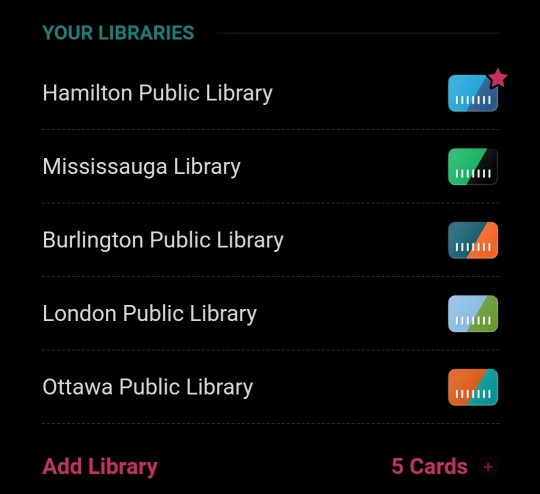
So how I fucked up was I didn't have my borrowing history saved on the ebook app for about six months. And I have terrible recall and unless I was raving about the book on social media then I have no idea if I read it, finished it, hated it, returned it in disgust five pages in, etc.
Regardless, let's proceed.
This year was much like previous years - lots of rereads and very few new releases. Many fiction and basically no nonfiction. I did some reading themed around books-that-got-adapted-into-TV, because let's face it, this was a TV year.
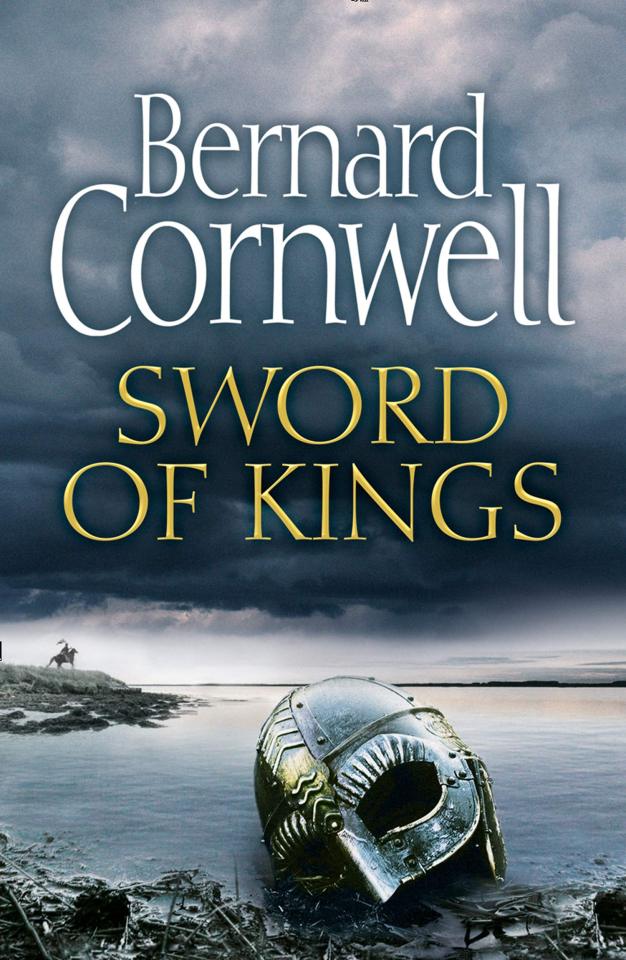
I haven't even seen The Last Kingdom, but my partner was telling me I would like it, so to spite him I started reading the ebooks. Then they were so delightful he got interested and bought the physical books. Now he's slightly ahead of me in the series and I'm reading some other Bernard Cornwell books instead.
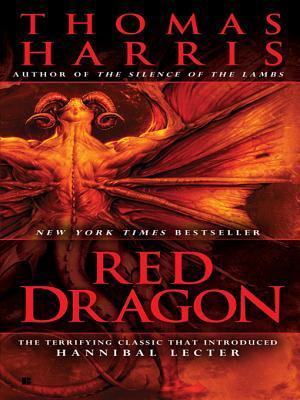
I watched all of the Hannibal TV show and really truly hated the ending, and then read all the books to figure out where all the weird tonal shifts and abrupt storyline conclusions were coming from. Having read all the books (except the weird final early-years one), I still don't know.

Continuing along my usual historical fiction, I enjoyed Gillian Bradshaw's reenvisioning of some Arthurian stuff. All five of my libraries only have the first two books, not the completion of the trilogy. Go figure. Nor do they have other titles of hers, or I'd be talking about them too.

This was easily and by far the best book I read in 2021, and I'll be buying a copy to reread it soon. What can you even say about The Corner That Held Them?

Viper Wine was a really incredible read. It's so imaginative and such a wonderful crossover between the historical fiction I love and the arty modern stuff I bemusedly tolerate and the scifi I feel very strongly about one way or another.
Good segue Allana!
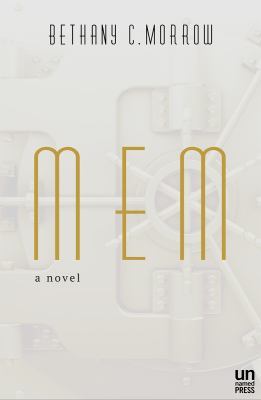
Mem is a very clever scifi, almost classic in that it takes just one interesting innovation and extrapolates some completely melodramatic societal shit from there. But it's also quite modern and very well done in its way.

Hench was good but also terrible? It is basically all the same questions that the Venture Brothers tv show asked years ago - and that The Boys is asking now, and etc. It had some excellent societal extrapolations and quite a few plot holes and annoyances.

The Wisteria Society was so totally bonkers I don't know what to say. I'm not entirely sure I liked it? Even though I had fun reading it?
Other stuff that's even less recommendable:
I read the Robert Galbraith (JKR) gumshoe books. For some reason Crave has only one season of the TV adaptation, and it's the most recent one, so I started that and got all excited about Holliday Grainger being in them. If you think the TV show is forcedly tawdry, I've got some news for you about the books.
I attempted to read some memoirs and some lightly-fictionalized accounts of life in the CIA after I watched a few seasons of Homeland. Nothing to write home about.
I skimmed probably 20+ different nonfiction books about modern witchcraft of various kinds (urban! green! uhhhh, I dunno, digital! or something) just to see what the kids these days are even pretending it all is, you know? Results: disappointment.
I read the Phantom Of The Opera! The actual book! It was ... something.
In rereads:
All the Becky Chambers, plus a new one I think? What is time.
Some not-insignificant amounts of Jane Austen & LMM.
Did I read the Harry Potters from the shelves? Probably.
I capped off the year rereading Reservoir 13 from Jon McGregor to remind myself that he is good, after trying and failing at his new one, Lean Stand Fall. (Sorry.)
I started to read Double Fold again, the first time since grad school, to see if I thought worse of it now that I'm so much more annoyed by non-GLAM-people telling GLAM people how to do their jobs. Didn't get far though.
1 note
·
View note
Video
youtube
Recently I was asked to help shortlisted applicants to the CLIR Digitizing Hidden Collections grant conceptualize “achievable, sustainable digitization.” As you can imagine, I had some opinions. The session recording is publicly available and can be viewed above. My colleague Jess Posgate and I had some general things to say that might be useful to anyone making digitization plans - and learned a lot about the grant, newly available to Canadians, in the process!.
You can read the transcript and download our slides and notes from this link (session 4, September 30th):
https://www.clir.org/hiddencollections/applicant-resources/#webinars
Many thanks to the CLIR staff for inviting us!
#stuff I do#archives#digitization#speaking#webinars#Conference Presentations#digital preservation#succession planning#the world is ending#pay your staff
3 notes
·
View notes
Link
This year I was invited to help out as an assistant on this course, created and taught by Grant Hurley. It was a very interesting experience for me, because I have little in the way of formal teaching experience so far.
Much of my role was to provide on-the-spot tech support for our profession’s famously quirky digital tools. I also reviewed, tested, and edited the weekly in-class activities, which meant testing them on one or two stacks, thinking critically about the pedagogical steps, and then trying to be realistic about time limits and retention expectations. Listening to students learn in real time was both a little too reminiscent of my own grad-school days and a bit of an eye-opener.
I can see how single-class approaches to the technologies many of us will need in our careers can feel a bit “set up to fail” - as in, how many tools can you really teach in 12 weeks? But the necessity is absolutely there, and the more I reflect on it the more it seems obvious that the whole curriculum needs overhauling to make sure students are working with the most common tools from day one. Teaching arrangement and description? Learn RAD right in AtoM. Teaching respect des fonds? Do a week on disk imaging and packages that capture original file structures. If your lecturers can’t provide that, get new ones.
I spend a bit too much time thinking about library and archives education for a person who has no intent in pursuing that as a career. But I do think the most effective change for the profession will be in fixing the masters programs - namely, having fewer of them in Canada and the US, and making accreditation and expections more rigorous for the ones that remain. We need to stop accepting everyone who applies, start screening for the diversity of background and thought that our industries need, and start ensuring that graduates actually take important skills with them. But we’re just a particularly egregious example of the cash-cow-degree-mill-ification of higher ed, and we won’t be able to resist that trend on our own.
0 notes
Link
We wrapped up this technical documentation contract at the end of February and I’ve been rather adrift since then! It’s so great to see that there have been pull requests and comments since I finalized my contributions; the OpenRefine user community is so enthusiastic and involved, and it was a pleasure to work with them. You can take a look, tell me what you think, or provide your own feedback directly to the developers by following the link above.
#stuff I do#writing#publications#technical writing#documentation#user manual#OpenRefine#open source#data#data cleaning#metadata
1 note
·
View note
Text
My year in fiction.
As with previous years, this post was brought to you by Bibliocommons’ Completed Shelf. Fuck yeah opt-in datasets.
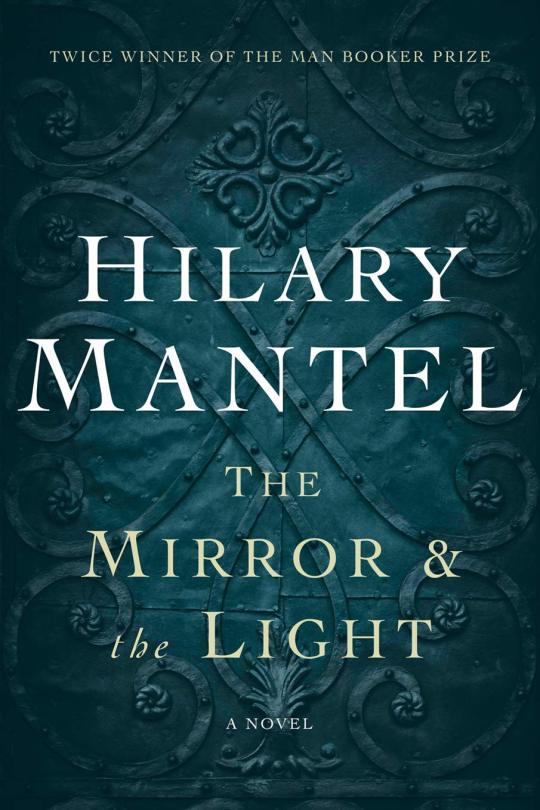
What a great year for finally plowing through the TBR pile, huh? Hahahaaahaaaa.
Even before all the stuff and things, I was retreating into rereading. Before 2020 started I was going back to do all the Murderbot books again so I could finish off with the newest one. I capped off the year (actually, still in progress) by rereading the Wolf Hall books so I could read The Mirror & The Light. I reread the Ancillary Justice trilogy (actually the first time reading the copies I bought), Meg Elison’s apocalypse trilogy, the five books of the Belgariad (filched from my childhood shelves), and the 20 books of Patrick O’Brian’s Aubrey-Maturin series.
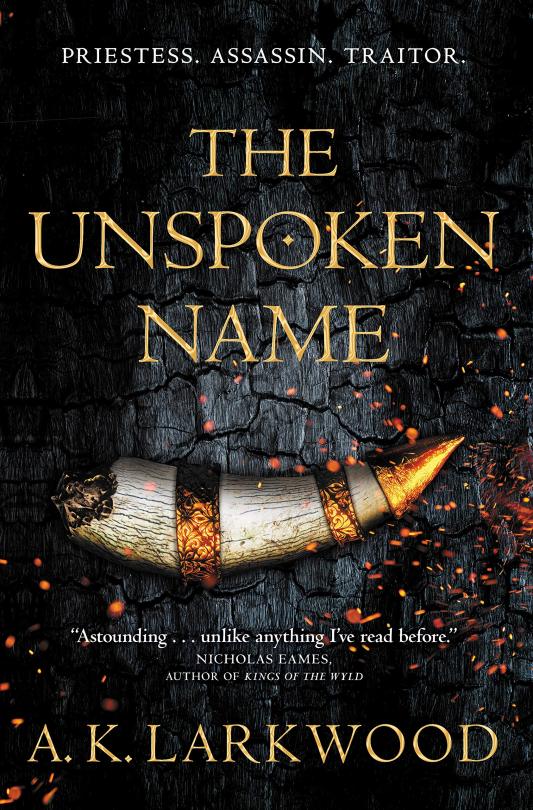
What did I add that was new? Hrm. By my count, I read 55ish books, and 27 were rereads, while 18 were new to me. Almost everything I read was from the shelves of the house (so, either my or my partner’s collection). I skipped library books from March through September. Then the library books were so underwhelming again I stopped reading them after October. Also during September we stayed at a friend’s place while ours was being renovated, so I read a few from her shelves too. What was new to me, that I can recommend:
Prodigal Summer
The Unspoken Name
Patience & Sarah
Ben Aaronovitch’s Rivers of London series (7)
His Bloody Project
... and I finally read Persepolis and Fun Home all the way through.

I read a number of big-name books that I can’t really recommend. I’m slogging through The Mirror & The Light and I can absolutely see why it didn’t win the Booker (sorry). I skimmed the first 200 pages of Gideon The Ninth before finding something to interest me. I couldn’t make any headway into A Memory Called Empire.
Some of them were just fine. The Poison Bed was fine. Transcription was fine. The chapters/essays of the nonfiction that I actually got through were fine (I basically never read a whole nonfiction book).
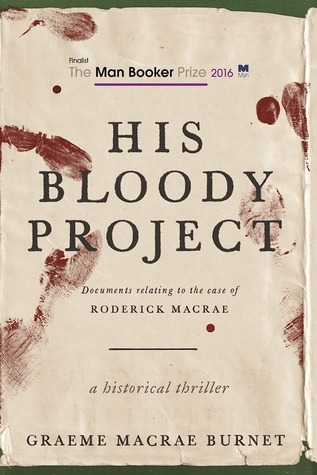
My partner and I ended up running into each other in our reading a lot. We were both reading Patrick O’Brian at the same time; when I started Wolf Hall again he was like, “Ugh, I was gonna do that next.” He’s reading Harry Potter now and I’m eyeing it jealously. Awkward.
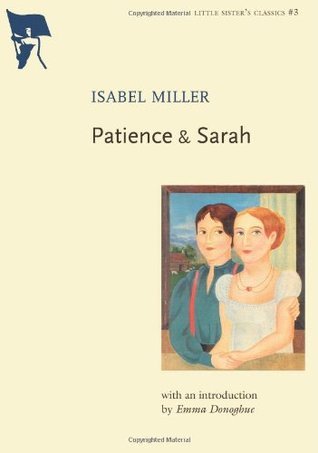
0 notes
Link
In June I was hired to work on OpenRefine, the favoured open-source data-fixing tool of librarians and archivists everywhere. My job has been to update and complete a user-friendly reference manual that worked systematically through every function of the tool.��
I’m almost finished the initial contract, and have been extended a few months into the new year to delve more deeply into some of the work we identified along the way. Figuring out how the tool works in order to document has meant questioning some of the things it does, doing some bug-hunting, and learning a lot about the wide variety of users and their purposes (hello, entomologists!).
A full first draft is just about done and about to be shared out for feedback and refinement (heh). If you follow the link above you’ll start at the beginning of the user manual. Suggesting edits is fairly easy and can be done on Github if you’re inclined.
Working on this project has been a delight and exactly the right kind of detailed-but-conceptual, independent-but-collaborative work that has particularly suited me during a pandemic. I’m really looking forward to hearing what people have to say and finding ways to make it better.
2 notes
·
View notes
Photo
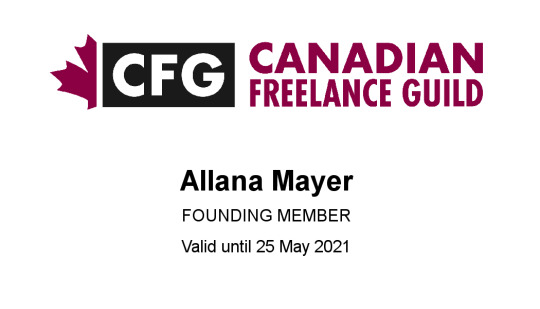
I joined a Guild!
I’m very happy that there are finally options for people like me who take more self-employment than salaried employment (not that there are many opportunities yet, even for archivists and heritage workers). Because my work spans writing, communications, web development and programming, and a ton of other things, this seemed like a good fit.
You can find me in the Canadian Freelance Guild directory here:
https://canadianfreelanceguild.wildapricot.org/widget/Sys/PublicProfile/54952785/5279447
0 notes
Text
Surveying a community on the idea of a digital archive
The last thing I want to share from this Oakville Arts Council project is the survey data we collected near the end of the study. We opened this survey up to the wider community so not every respondent had been fully briefed or consulted about their own individual participation - and while some responses reflect this, the yes/no questions are still very much in favour of the project. I think these kinds of responses are fully replicable in other areas, whether or not you do as much extensive consultation as we did (we met with 50+ individuals representing 20+ community groups) or have other outreach and education components such as the webinars we did.
Here’s the text straight from the study report, and I’ll attach the survey instrument too so you can see what we asked. Here it is in a PDF.
***
Of our final dataset, 97.73% were supportive of the project, 100% felt the Oakville Arts Council was organizationally capable of project success, and more than 20 respondents gave us ideas about how they would contribute to the archive or use it once it was built.
97.73% would like to see more documentation of Oakville’s art history.
Responses include:
“I think we have a very vibrant and active artistic community and it definitely should be documented.”
“There is a rich history and also many newcomers to town who may not little of that history.”
“Many people have no idea of the wide variety of arts in which they can learn or participate even when they have lived here for several years. Newcomers of course have even less idea what is available.”
“Oakville has a rich history which will be lost if it is not properly documented.”
“No historical account of a community would be complete without the history of the arts in the community as the arts paint a rich picture of the culture and the soul of a community.”
“It is so important for new generations to connect with the history of their city, and how it relates to their community.”
“It is good to have a reliable site to research arts and artists - knowing more about both gives a better understanding of the work and can be encouraging to other artists to know more about an artist's successes and hardships overcome.”
“History is critical to helping current and future Oakville residents feel a greater connection to, and affiliation with, their own art, with Oakville, and with the community.”
97.73% would like to see an online archive of materials related to Oakville's art history.
Responses indicated an interest in both an online collection and a physical collection:
“It is good to have such an archive in one place - online research is not always easy and if there is a specific Oakville art site, then it makes research or just looking for information, more accessible.”
“Both online and in print should be promoted. Younger people are accustomed to finding about everything online and some older generations prefer finding information in print.”
“Accessible at all hours and to all. However, I also am concerned about the difficulty of keeping it up-to-date as digital technology evolves.”
“Not only should there be an online archive but original materials should be collected and properly stored for future researchers.”
100% think the Oakville Arts Council is the right organization to pursue this project.
Responses include:
“They are a trusted supporter of the arts locally.”
“Who better?”
“It is the one voice for the arts in Oakville.”
“They have the staff and facility to organize and amass the large amount of information which will need to be categorized and presented.”
“Experience and the personnel to complete it.”
“The OAC has access to and a relationship with a variety of artists and therefore is well placed to access the information.”
“I look to them for general information. They already demonstrate skill online and have a recognized presence for the arts.”
“Projects need a leader, but this needs to be a joint effort involving as many stakeholders as necessary to ensure the final product covers all the bases.”
95.45% agree that this project will help more people connect with culture, heritage, and the arts.
Responses include:
“Digital dispersal of information is practical and appealing to most of the population. It is an excellent method of publicizing upcoming arts events and also retaining the history of past performances of all kinds, usually only briefly covered in the local press. It will require great diligence to keep it going properly.”
“During physical distancing, residents can still engage with the arts.”
“If presented in a concise, exciting way I think it would be a wonderful interesting resource.”
“It would be an important reference source for future artistic projects to be aware of what has been done before, and the Oakville people who initiated and sustained artistic endeavours here in Oakville.”
“It will allow those interested in the various arts to find out who have gone before and the heritage of this town and its culture and be a link between the past, present and future.”
97.73% agree that this project will benefit artists and arts organizations; 97.73% agree that it will benefit the community of Oakville.
Responses include:
“It may give newcomers a point of connection not only with the community as a whole but also lead people to the arts organization they might be interested in exploring.”
“Could enhance collaborative efforts.”
“Information is vital for getting new members involved.”
“We learn valuable lessons from those who have a history in the arts.”
“Can provide inspiration and a forum for collaboration.”
“More involvement in community events, potentially more volunteers and donors. Possibility of children getting interested in the history of their particular arts form here in town.”
“It may help those who are thinking of moving to Oakville an insight of what we feel is important to us and the preservation of our cultural history.”
“There is such an influx of new residents, it is important for them to know and recognize the people who have helped to created a vibrant society in the past.”
“It will bring people together socially.”
“Curated materials add to content that can be posted online, used in the classroom, whether online or not, and add to our stories.”
95.45% agree that this project is needed now.
Responses point to the coronavirus pandemic as a specific timely reason:
“As time marches on resources that are hidden away in boxes and basements will disappear forever.”
“The arts are needed more than ever during Covid-19.”
“Pertinent documents may be lost if not gathered soon. I am over 80, and if I can no longer be active, my reference material will be discarded.”
“Much of the past is disappearing and needs to be archived before it is too late.”
“If we do not have something like this already, then why not now? The longer we wait the more gets lost as people of previous generations with valuable input and information may no longer be around.”
“This will take time and the sooner you start the better. There are many who would say we will need all our money and help to rebuild the economy for those who have lost work and businesses and this is true, but we also need to keep in mind those things that enrich our souls, our inner spirits and give us joy - the kind of joy we can get from a fine painting or a beautiful song or performance by someone who has been gifted and nurtured here in our own Town.”
“In terms of self isolation - provides more connection for the community (this would be a very immediate need).”
“This question couldn’t come at a better time - we’re housebound, and having curated materials posted online allow for learning experiences we can’t otherwise have.”
“You don’t want history to fall through the cracks.”
92.86% of eligible respondents would be willing to participate in some way.
Responses include organizations we have already met with, as well as individuals:
“I have much of the above material which needs to be saved.”
“Because I was born here and have been involved with the artists of Oakville for almost a century.”
“Yes, if it moves forward I would think that I/we would participate, as we participate in any opportunity that may give us some visibility, however small.”
“As I continue to make art, teach art and write about art, I hope to contribute what I have been privileged to learn. Being born here 91 years ago and I can still remember, there are stories that I can contribute.”
“I’m not sure how, but I’d love to.”
“I’m always available to help the arts.”
2 responses indicated they felt they were ineligible or had nothing to contribute, but as the project components are still undetermined, there may be broader or more strict eligibility in the future.
We asked people to tell us in their own words how they might be able to contribute:
“I would provide audio and video recordings, and historical documents, about the groups I work with.”
“[Our group] has existed in this town for almost 60 years and we have material that could be digitized covering most of those years.”
“I have items of historical importance for [a group].”
“Photographs, newspaper articles, audio and video recordings”
“I would submit paintings and animation, and reference my writing and books.”
“submit videos, student compositions.”
“I’d happily work/volunteer/promote the collection. I have memories of taking pottery courses in the little building at Coronation Park as a child and have the horrid creations still. The experience meant something to me.”
“I would like to contribute memories and stories. I was part of community theatre for many years.”
We then asked people to tell us in their own words how they would use the archive:
“As a history buff, I would consult it to find out about artists of the past.”
“Referring to it for information on past and present artists and their works and new ideas of what constitutes art.”
“Excellent resource for developing community projects and bonds.”
“To connect with other arts organizations.”
“I could refer new chorus and orchestra members and future concert goers to the material in the archive.”
“Share it with audience members”
“Promotion of Oakville”
“I would refer to it in marketing and correspondence, for artists I am involved with.”
“If allowed, to continue providing updated images.”
“I’d personally love to read others’ stories, use them for research when writing, and to teach.”
“It would be interesting to see the history of such things as the Joshua Creek Art Centre, and the OAC itself.”
“sharing it with new members of our various organizations, providing a link to it on our website and social media.”
“I would refer to it in our literature and on our web sites to draw people's attention to this resource.”
We asked respondents to rank various potential components of the project. In order of preference, 50% or more of respondents were interested in:
Profiles of Oakville-related artists and arts organizations (84.85%)
Virtual exhibits exploring aspects of Oakville's art history (81.82%)
Oral history interviews with Oakville artists and patrons (78.79%)
Video tours of Oakville cultural venues, landmarks, or studios (69.70%)
Success stories about Oakvillians (including students) that made it big (69.70%)
Educational resources for classroom use (60.61%)
Audience-submitted stories or memories in text, audio, or video formats (57.58%)
Audience-submitted materials, such as event or exhibit photographs (54.55%)
Interactive map of Oakville cultural locations over time (51.52%)
Historical magazines, periodicals, and newspaper articles (51.52%)
Finally, we asked people to share their thoughts on any of the topics we’d covered, or the project in general:
“I think this project is an excellent idea and please feel free to call on me at any time to participate.”
“It would be a good idea to emphasize newcomers and diversity - showing us to be a welcoming community.”
“The concept of arts organizations should be interpreted broadly to include educational organizations that deal with digital arts, for example, and not be restricted to graphic art such as painting. The administration of arts organizations should be included.”
“Would like to see profiles of Oakville based artists who are internationally recognized as I am not aware of many.”
“Your project is a great idea. Now, bring it to life.”
“Focus first on gathering the available information together before embarking on expensive or grandiose projects like documentaries and professional editing.”
#archives#digital archives#stuff I do#publications#survey#data-gathering#community archives#consultation
0 notes
Video
youtube
I also forgot: for the Oakville Arts Council I did two webinars (that were originally meant to be in-person workshops) for the community about records management and archiving for artists and arts organizations. You can watch the Youtube above and grab a copy of the slides if you’d like.
And I made a cute flyer too!
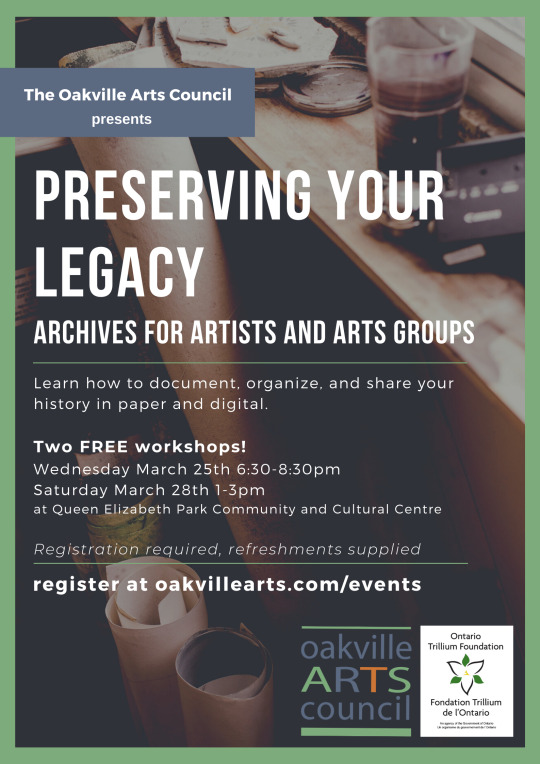
0 notes
Link
I was hired on a six-month contract to work with the Oakville Arts Council and the artistic community of Oakville to figure out how we could approach building a digital archives to document the creative legacy and accomplishments of the town. The work was an absolute delight although I have never sent so many cold-emails or scheduled so many meetings in my life.
You can read the entire study (all 64 pages of it!) at the link above. With any luck (and some grant application magic) the project will move forward and we’ll see something wonderful get built.
#stuff I do#publications#work#ontario#canada#archives#digitization#community archives#digital archives#consulting#research
0 notes
Link
A few years ago I wrote a summary of why and how library and culture workers should pursue freelance writing - not an economic impetus so much as the need to basically do professional outreach - to explain ourselves in more than just puff pieces.
Now that we’re in a global crisis, I know a lot precarious workers (a large portion of our workforce) are hurting and stuck for what to do. I also know that a lot of publications are tightening their budgets for paying for freelance pieces (due to lost advertising revenue, because nobody’s buying anything anyways so why would you run ads?) so it’s not exactly a great time to be competing with experienced journalists and freelancers for the slim pickens of writing assignments. But that doesn’t mean your voice isn’t important and that you can’t provide a perspective nobody else can - it just means you have to be extra crafty about it.
Please note: Apparently in Canada the crisis benefit is only for people who have absolutely no income, unlike Employment Insurance, which is prorated based on your other income each week. So, if you’re getting the CERB because of lost work, maybe don’t try to scrape together a few more hundred bucks a week in freelance writing. If you’re in the US, honestly, godspeed to you, because nothing I say can help you.
I wrote out the following in response to a few people who asked me about freelance writing. It’s somewhat a restatement of that post from 2016, because it may be useful to you.
---
There are great feeds that share opportunities for writing. There are a bunch on Twitter, and there are probably more wherever you get your social media. They share full-time and part-time jobs too, but also a lot of calls for pitches.
Here is what a call for submissions looks like:
https://twitter.com/saruhli/status/1246234314959921154
Versus what a call for pitches looks like:
https://twitter.com/ModelViewMedia/status/1244670667418730497
https://twitter.com/DavideMastracci/status/1244627615861952515
A call for submissions often means they want the whole thing right away, which is almost always the case for short stories, poems, artwork, photography. A call for pitches means they want you to sell them on an idea or topic first and not submit the whole thing right off the bat. That’s almost always the case for any reporting, review, analysis, personal essay, interview.
There are lots of reasons to want to approve an idea in advance for these, rather than get a piece in draft. Depending on what you like to write, you may not need to learn how to pitch at all. If so, here’s some advice on pitching.
---
I find pitching articles to publications is like a muscle. You have to build it from nothing and then if you don't use it it will atrophy and you have to build it back.
Read a lot of invitations for pitches and wait for your brain to really get into the pitching mindset - you won't have any ideas at first, and then you'll have a few, and then you'll have lots, and then you'll have maybe too many.
Be slow and cautious at first because you don't want to overcommit yourself when you don't have a lot of practice at the rolling deadlines and the sudden intensive editorial overhauls.
---
A good pitch is one paragraph of semi-writing and one paragraph of a work plan.
By "semi-writing" I mean you want to basically draft some of what you plan to contribute. It should be snappy and show off the tone of the eventual piece, it should get them interested enough to want to hear more, and it shouldn't give away the ending even though it should include the thesis. ("In recent years libraries have become _________. But how does this affect ________ / play out in _____ communities / reflect the changing nature of _____? One library is ______, and another has taken on ______." is probably a fine pitch.)
The work plan should be professional, and shorter, like maybe just one sentence, that says how many words you plan and a bit of the structure (like "In 2000 words I'll introduce the context, discuss a few complicating factors, walk the reader through two or three clever solutions currently in practice, and end with suggestions for more.") It's just meant to show you mean business.
Get a byline (two sentences) + links to your work ready. Only share two or three links with each pitch, the most relevant ones, or those similar in length or tone.
And always read their website of course. Most submissions guides will ask for these kinds of things, but some will vary and be more specific.
So, for the example above, Model View Culture (who I have written for, and who are great) will have a page on their website:
https://modelviewculture.com/contribute
Not every publication will tell you what they pay, but people are getting better about asking, so if you see a call, you will most likely find the relevant information in the comments:
https://twitter.com/ModelViewMedia/status/1244672115263049728
ALWAYS spend a half-hour on the publication’s website reading what kind of stuff they like to publish. Always search to see if someone’s written something similar to what you want to do. Always find a new angle to analyse, if so. Always reference pieces they’ve published if you want to build off them - publications LOVE it if you link, in your own piece, to older pieces of theirs. And it helps show them, right in the pitch, that you’re aligned with what they do. You have an advantage if you’re already a regular reader of said publication, but it’s not too hard to do some research here.
Think of it like a job application: you wouldn’t apply without spending at least some time on their website or searching around to figure out what it’s like to work there.
---
There is absolutely nothing wrong with telling the story of someone very close to you, with their permission. Many a great article has been a decent writer basically recounting their sister’s difficult pregnancy, their parents’ love story, their coworker’s breakup, their child’s developing mind. Find a story you think needs to be told because it’s a microcosmic reflection of some societal issue. I mean, do split the payment.
I would start with less people-intensive pitches to start, until you get the process down and know how you work. Personal essays, reviews, history-ish work, pop culture stuff is great to start with.
I imagine right now is a great time to do something thought-provoking / deep-dive-y on streaming shows and movies. It sounds a bit hokey but you can always bring a crit lens to just about anything, problematic faves being what they are. Lots of places are looking for "new hobbies to do from home" articles. Crafts? Wikipedia editing? Cooking? Lots of fodder there.
LOTS of publications right now are looking for political predictions or analyses about a post-pandemic world. It’s a heavy topic but do consider pitching something answering “What will libraries look like?” or “What is an essential service, really?” or “Why don’t we protect frontline workers better?” or “Why we should all unionize.” I know you have thoughts.
---
I like to write a draft of what I'm thinking right away. Even if it's just point form or the first half or the snappy conclusion. Then I don't have to try to recreate my inspiration weeks or months later when they finally get back to me. And it builds my confidence to have most of it written before I even pitch it, so I'm less worried about deadlines. You can always reuse this material for other publications so it's not wasted effort. Put it in Google Drive, honestly. It’s so easy to search for things you’ve already drafted if it’s all in one place. I’m always writing ideas down even if I’m too busy to even consider pitching. Here’s a glimpse.
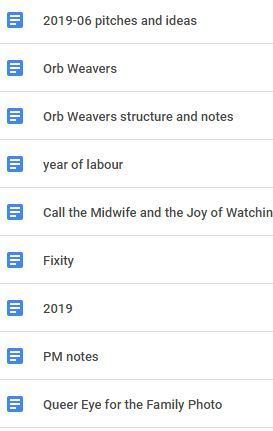
---
So they will write back and say "Nope, not for us" or "Yes, we love it" or "Maybe can you do this specific thing instead." They will give you a deadline (or a total timeline), a word count, and a price. If not, ask for those right away.
Okay, now to write the thing.
If you already have a draft or some notes in a document, you're off to the races.
If you've pitched an article where you interview people, you should probably have reached out to those people gauge their interest before you make the pitch in the first place (unless you have 10+ people in mind, then you'll probably be fine).
I really can’t help you with the writing part too much, but I can tell you that the more I wrote the moment I had the idea, the easier it is to finish it later. Make sure you do research! No matter what level of brow the article is at, you want to link to and cite similar pieces from around the web. You’re not being any less original and meaningful by pointing out that others have contributed to your thoughts, and it’s simply a nice thing to do, and who knows, you may get some attention that leads to future writing opportunities. There are almost no web publications out there that won’t let you put links in your work (though, as I said, they will prefer links to their own stuff).
You may wish to ask, upon their acceptance of your pitch, for a pro bono subscription to access their back catalogue if one is needed. They will almost always have a writers-level login for you to use. It may be time-limited or it may be not worth their time to monitor, so congratulations, you just got a free subscription!
---
They will always, always, always return it with edits for your approval. This is where you start creating a relationship with an editor, one-on-one, and also learning about the editorial process for these types of publications writ large. Some editors will basically only do a copyedit; some will change whole sentence structures; some will slash and burn hundreds of words out; some will do an excellent job tightening up repetition and emphasizing the important bits; some will just confuse you. Some editors will put in jokes that you would never in a million years write.
You can decide which hills you want to die on, or you may wish to meekly accept whatevs for your first few articles. I have stood up for myself when an edit created a voice that was distinctly not my own, or perhaps cut out a clarification I thought was necessary (e.g. something having to do with intersectional axes, or that ended up feeling gender-essentialist or tonedeaf in some other way). Otherwise I generally let the editors go with what they think is best.
It could be one round of quick edit approvals or several rounds of embarrassing grinding. It could make you absolutely miserable. I have pulled pieces I thought were good but upon multiple editing rounds turned out not to have a point, or not the point I thought they did. I have pulled pieces that I ran out of time to make good or couldn’t quite grasp what the editor was working toward (and they couldn’t quite grasp how to tell me). And I have had pieces fall into a purgatory of nobody-knows-what-to-do-with-it, where they ended up paying me in full (or paying me a “kill fee”) and not publishing it. It happens. Don’t worry too much about it.
---
And finally, paperwork.
They may wait until you have a draft they like before doing any paperwork (or even a publication date and a final version), or they may do the paperwork first.
Online publications pay less than paper ones - 5 to 10 cents a word, versus 10-50 cents a word for paper. Most will say on their pitching guidelines if they do a flat rate (like "$200 for 1500-2000 word essays").
Reviews are paid less but can be good experience-builders. Anything that verges on reporting (interviews with professionals, ATIPs, travel) will be much higher rates but I have no experience with that and I imagine you're not gonna aim for that anytime soon.
Most will pay on publication, which can be months from now; others will pay when they get a final draft ready. Some will pay monthly based on one of those dates. Many will pay automatically, and some will require you to invoice.
You can make an invoice really easily in Word or Google Drive, there are lots of templates. They may mail you a paper cheque, they may e-transfer, they may wire, they may PayPal. Put all those instructions on your invoice so they have no excuse later.
If it's an American publication, they may require you to sign a W8 or a W8BEN or some similar form that just says "The US has a tax agreement with this person's country; the money will be taxed as income in their country." That's why it's good to put "_________ is a Canadian living in Toronto" or whatever in your email byline right off the bat - you want them to make you aware of their requirements for paying you.
They may also have other contracts for you to sign such as giving away your copyright. I'm not too precious about this - every publication I write for is readable online without a subscription, so it’s mostly moot - but you can always ask about a CC license or something. You will want to use an online document signing tool like HelloSign if you don't want to print, sign, scan, and email each contract.
---
You will need to count up all of your "self employment income" for your taxes. Once you get your very first acceptance, start a spreadsheet. (I have all my information in an Airtable database, and yes, that is a referral link, because they are great and also free.) I also keep track of places I pitched and what their response was so I don't double-send, and so I can follow up if they have promised to do so but have not (but of course, don’t be annoying about it).
You just need to know your total earnings for tax-time, not too complicated, and be able to list the website you wrote for. Depending on how much you earn you may be able to claim deductions from this income for business-use-of-home (usually a percentage of your workweek throughout the year, so, probably quite low unless you really make a go of it).
0 notes
Link
I wrote this Active History post after NARA photoshopped some exhibit images in the museum lobby. It was written in February and posted in March and then there were about two months of collective amnesia so I’m sharing it here now. Whoops!
1 note
·
View note
Text
My year in fiction.
As with previous years, this post was brought to you by Bibliocommons’ Completed Shelf. Fuck yeah opt-in datasets.
This was a hard year.
According to the library dataset, I took out just under 100 books in 2019. It started with Semiosis by Sue Burke and The Amateurs by Elizabeth Harmer, two books that were, if I recall, just okay. Semiosis was maybe even pretty good; The Amateurs was set in my current city and a little too uncanny valley for me to handle.
And it feels like the rest of the year really just went on like that. I DNFed probably 70 books and actually finished about 30. Some were outstanding, and the vast majority were just okay. This is what I get for putting bulk holds on 50+ books based on end-of-year lists that turn out not to match up with my tastes.
I will say that the outstanding ones were incredibly outstanding and just about made up for the long months of boredom and frustration and looking at my phone because the book on the sidetable was a dreadful prospect.

So, this is a short list of Very Good Books and a shorter list of books-with-caveats. I think almost everyone I know has read the Very Good Books already, so I don’t even really need to explain them:
Murderbot 1-4
Son of a Trickster & Trickster Drift (but not the other one)
Record of a Spaceborn Few, Long Way to a Small Angry Planet, Closed and Common Orbit
Blackfish City
Reservoir 13
Circe
84k, Sudden Appearance of Hope, Games House
I would like to talk about Claire North because her work is just fantastic and imaginative and a wonderful blueprint for how speculative fiction should work. You all should read them - and I feel like it’s the one thing that isn’t already being sufficiently raved about on this list that I can actually contribute a recommendation instead of just confirming existing ones.
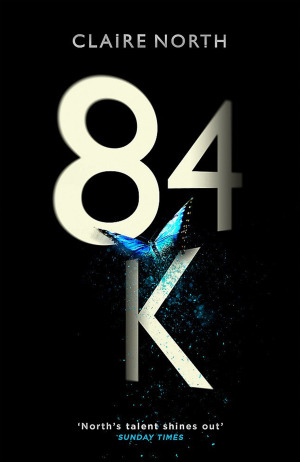
The Wind from Hastings
Tiger Flu
Memory of Water
Boat People
The House Next Door
The House Between Tides
These are all good reads but not what I would put into my top ten. Tiger Flu in particular is fun but baffling, a bit too over-the-top and scattered; Memory of Water and Boat People were both very touching and nicely done and probably made me cry a bit. The House Next Door is really quite good horror that still felt formulaic. The Wind From Hastings I mention because it started me on a path of Morgan Llewelyns that are piling up as we speak.

Trauma Cleaner
Into the Tunnel
The Year 1000
These are the only three pieces of nonfiction that I got through all year. The former is a biography of an Australian housecleaner who specializes in compassionate service to hoarders, crime scenes, and disasters. The second is a small research packet into a name of a Holocaust victim, discovering what can be known about a child who was hardly herself documented. The last is an adorable little walkthrough of captured knowledge about England 1000 years ago and how everyday people lived their lives.

There’s a good chance of a few books around the house having been read this year but not counted on my library lists. Here’s a short taste of what I started but put down this year:
Gormenghast
The Municipalists
The Tobacconist
The Hidden Thread
The Kraken
The Gone World
Barren Island
Gnomon
The Raven Tower
The Tangled Lands
Monkey Beach
Scarborough
The Power
Just one of those years, I guess.
1 note
·
View note
Text
Critical advocacy.
Recently the results of last year’s Collections Care Survey were shared:
https://capc-acrp.ca/en/news/2019/cac-and-capc-announce-release-of-canadian-collections-care-survey-summary-report
And the Globe and Mail grabbed some highlights:
https://www.theglobeandmail.com/arts/art-and-architecture/article-survey-highlights-risks-in-canadian-museums-as-growing-collections/
Unfortunately, neither show a particularly advanced level of critical thinking or research interpretation. I tried to dig in to the study on Twitter but found myself at a bit of a loss, since the summary doesn’t include raw data and doesn’t allow for further analysis than what’s presented.
hoo boy, let's break this down. the study was mainly museums & archives (but included other GLAMs) and had about a 15% sample size. https://t.co/pCt8AQJw06
— Allana (@allanaaaaaaa) November 19, 2019
First, I compared the survey response rate to the 2017 government survey, which says there are about 2700 not-for-profit heritage organizations in Canada.
https://www.canada.ca/en/canadian-heritage/corporate/publications/general-publications/about-survey-heritage-institutions/2017-report.html
So, the Collections Care Survey has about a 15% response rate with 389 responses. That’s fine. It’s not great. There’s not much to tell us how those organizations represent their demographics by size, province/territory, budget, etc. (What I mean is, Canadian Heritage has that data but doesn’t share it in their report, so we can’t compare.) But note that the CCS is not a bell curve on budget - there are a high number of responses from large organizations, which may give you pause. It would be nice to see that $1 million + category broken down more. Most respondents are museums, or archives, or museums & archives, which to me reads as mostly smaller municipal organizations, not the big ones, but there’s no way to know here.
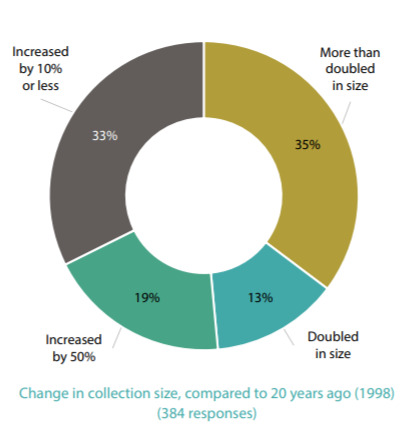
----
The big claim we’ll want to break down is the Glove and Mail headline - that 50% of Canadian heritage organizations have had their collections double or more in the past 20 years. Not only is that not quite accurate - 48% said their collections had increased by at least 75%, based on the available categories in the survey instrument - but it doesn’t tell us much. Who’s to say that a bunch of 20-year-old organizations didn’t respond?
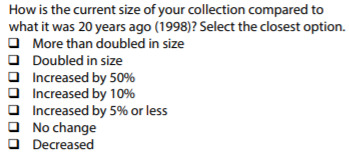
Again, responses don’t form much of a bell curve. Another 33% say their collections haven’t really expanded much (by 10% or less). That is also meaningless without some context - are they turning away materials, or are they not collecting for some other reason? Is it space? I would be much more compelled by the idea that materials are being lost because organizations can’t accept them.
What does collections growth really mean, what does it correlate with? Does it mean a successful organization with a successful renovation and space expansion? Does it mean a well-run institution with a healthy budget? Apparently not in all cases, if the survey wants to emphasize materials being left in walkways and falling off shelves and a lack of conservation professionals.
There are a few clues about this: looking lower in the question about precise risk vectors, “overcrowded storage units and aisles ranked highest for the largest institutions (budget > $1M).” While fire suppression systems were the biggest concern for the smallest-budgeted organizations. And 14% of all respondents said “none of the above!”
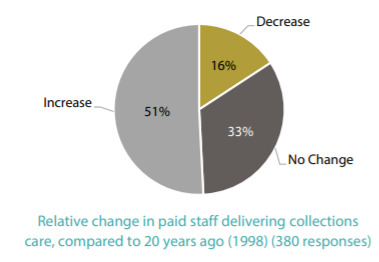
On the topic of the lack of conservation professionals: 51% of respondents said their collections care staff had actually increased in the past 20 years. Go ahead and name one other heritage demographic that’s increased in the past 20 years. Go ahead. I’ll wait.
----
Another concern I have is that the survey doesn’t seem to explicitly exclude digital acquisitions. Just because we all assume we’re talking about physical doesn’t mean that’s totally clear for every respondent. Certainly having a collection more than double in 20 years seems logical if we’re including digital items. 97% of respondents (376 of 389) answer a later question about digital preservation, so it may or may not be included in the earlier tallies.
----
I want to note a few other misleading results: this question asked people to name a precise percentage, but breaks down the results unevenly to make it seem like “15% or more” could go on forever. Is 15% a practical benchmark for the profession? Does it indicate a crisis state? I have no idea. Just show me the actual answers already, pie charts be damned.
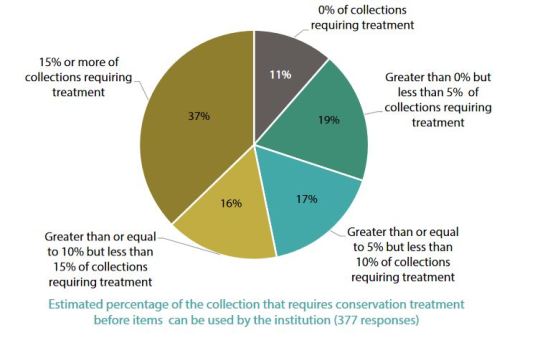
I think my main takeaway is that the survey summary seems to emphasize that we’re collecting beyond our means - when it should emphasize that our means are too small to do our baseline jos. It’s not the “ballooning collections” that are the problem: it’s our lack of funding to support those collections.
When we do data-collection to further our advocacy work, we need to be sure that we ask the right questions, interpret the results clearly, do lots of cross-examination to pull out meaningful conclusions, and avoid general statements that don’t get us anywhere.
if we want effective advocacy with these data, we should avoid the conclusion that it's our hoardish overcollecting that's causing the problem. the problem is the disparity between our inadequate funding & the growing expectations of donors, governing bodies, and the public.
— Allana (@allanaaaaaaa) November 19, 2019
1 note
·
View note
Link
I’m reformulating my fundraising shop for the 2019 holiday season: digging out new public domain books, adding new designs, and powering down old designs.
I will eventually figure out a way to donate the combined earnings towards a Canadian diversity scholarship for archivists rather than an American one. Such a scholarship doesn’t currently exist, so setting up the mechanism for it will be a bit of a process (and the contributions from the shop’s profits may not be enough to constitute their own scholarship, so I might be looking for a matching angel donor!). The earnings will be kept until we have everything in place, and if for some reason it doesn’t work out, I’ll donate what I’ve collected to the SAA Mosaic fund as per usual.
There are a few new designs already - things I’m experimenting with. First up: marbled endpapers!

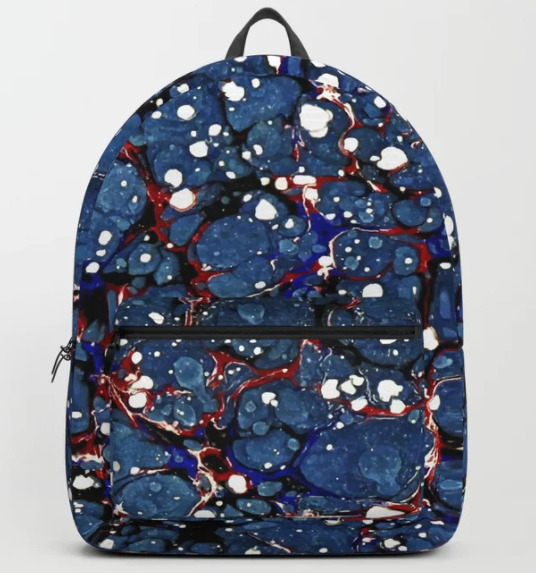

Please keep in mind that the scholarship benefits double when you use affiliate links with my account name on them (i.e. every link I share). They look like this - with “curator=publicdemesne” at the end:
https://society6.com/publicdemesne/collection/2019-designs-for-sale?curator=publicdemesne
When you click through using this link, I get referral earnings from the sale of my and other people’s items, usually about the same amount as I get from the sale of the items alone. You can shop the wide variety of Society6 profits, not just my shop, and still make money for the fundraiser. It, and the frequent sales, don’t eat into anything except Society6′s own considerable revenue. So, be sure to use these affiliate links when you want to shop, not just googling the shop name.
Society6 usually has a lot of sales leading up to the holidays, so it’s 40% off everything today - and keep your eyes out for free-shipping sales too, because those include international shipping. Yay!
1 note
·
View note
Link
I just realized there’s a bit of a gap on this blog, especially in terms of publications, because of the varied nature of the work I do.
My bread and butter is almost always writing, whether it’s for libraries and archives or somewhere else. For much of 2017 through 2019 I was publishing weekly (or more) blog posts for OurDigitalWorld, which you can see using the link to my author category above. I’ve highlighted some of the better projects on this blog already, but I don’t want to diminish the steady stream of industry and organizational news I produced.
See for example interviews with our member organizations:
https://ourdigitalworld.net/2019/10/09/welcome-the-cobourg-museum-foundation-to-vita/
https://ourdigitalworld.net/2019/11/07/welcome-the-canadian-heritage-photography-foundation-to-vita/
Project announcements:
https://ourdigitalworld.net/2019/08/28/announcing-the-odw-abolitionists-collection/
ODW’s first (and only, so far) annual report:
https://ourdigitalworld.net/2019/03/28/ourdigitalworlds-2018-year-in-review/
Resource roundups for the public and for our members:
https://ourdigitalworld.net/2019/03/06/oral-history-project-resources/
https://ourdigitalworld.net/2019/05/29/spring-clean-your-vita-site-with-these-design-resources/
And historical essays rounding up materials from our vast and varied collections:
https://ourdigitalworld.net/2019/07/24/ontario-and-the-moon-landing/
0 notes